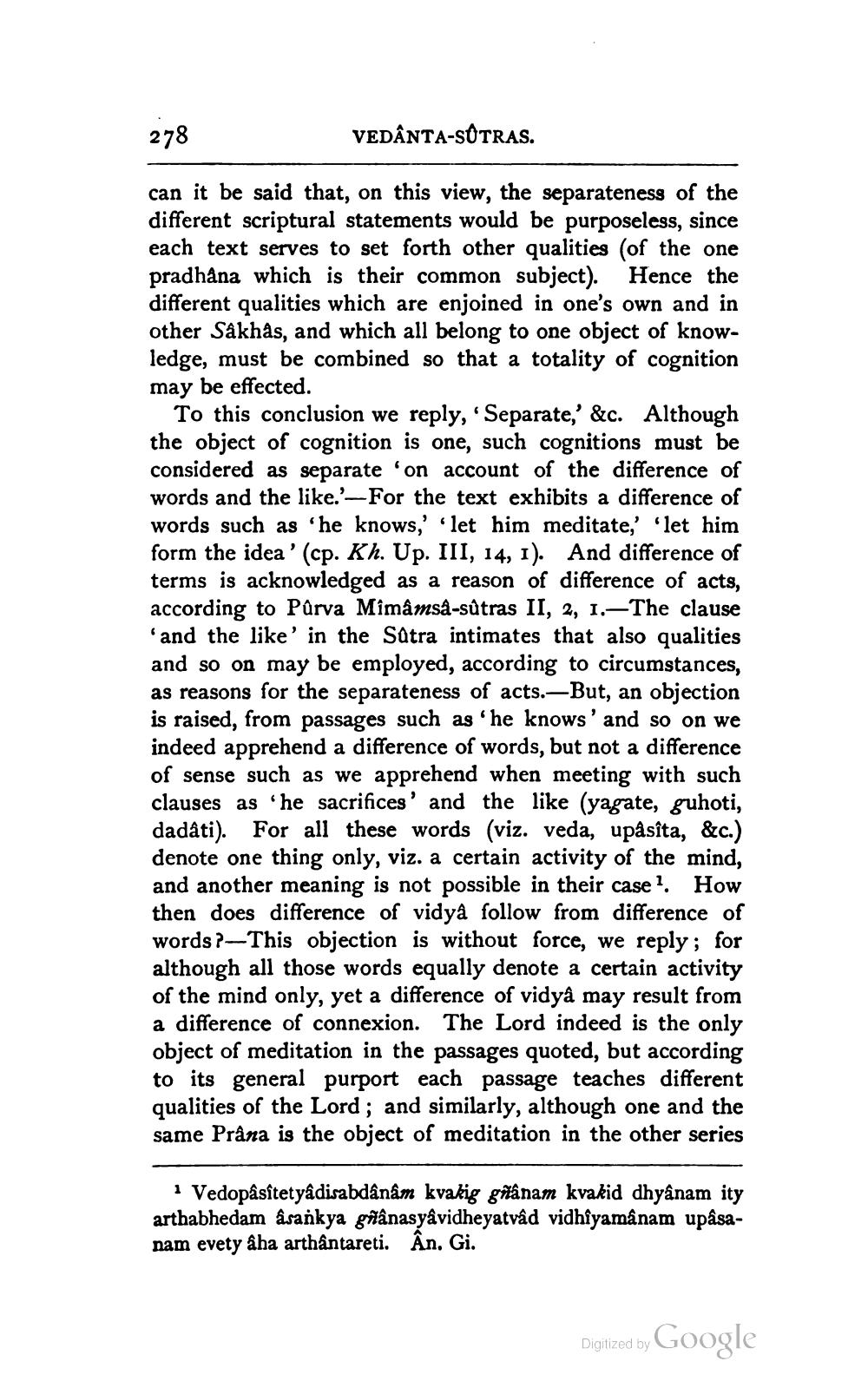________________
278
VEDÂNTA-SOTRAS.
can it be said that, on this view, the separateness of the different scriptural statements would be purposeless, since each text serves to set forth other qualities (of the one pradhana which is their common subject). Hence the different qualities which are enjoined in one's own and in other Såkhas, and which all belong to one object of knowledge, must be combined so that a totality of cognition may be effected.
To this conclusion we reply, 'Separate,' &c. Although the object of cognition is one, such cognitions must be considered as separate 'on account of the difference of words and the like.'--For the text exhibits a difference of words such as 'he knows,' let him meditate,' 'let him form the idea' (cp. Kh. Up. III, 14, 1). And difference of terms is acknowledged as a reason of difference of acts, according to Purva Mimâmsa-sútras II, 2, 1.–The clause
and the like' in the Satra intimates that also qualities and so on may be employed, according to circumstances, as reasons for the separateness of acts.—But, an objection is raised, from passages such as he knows' and so on we indeed apprehend a difference of words, but not a difference of sense such as we apprehend when meeting with such clauses as "he sacrifices' and the like (yagate, guhoti, dadâti). For all these words (viz. veda, upâsîta, &c.) denote one thing only, viz. a certain activity of the mind, and another meaning is not possible in their case? How then does difference of vidyâ follow from difference of words?—This objection is without force, we reply; for although all those words equally denote a certain activity of the mind only, yet a difference of vidyâ may result from a difference of connexion. The Lord indeed is the only object of meditation in the passages quoted, but according to its general purport each passage teaches different qualities of the Lord; and similarly, although one and the same Prâna is the object of meditation in the other series
1 Vedopâsîtetyâdisabdânâm kvakig gñanam kvakid dhyânam ity arthabhedam âsankya gânasyâvidheyatvad vidhiyamânam upasanam evety âha arthântareti. Ân. Gi.
Digitized by
Digilzed by Google




